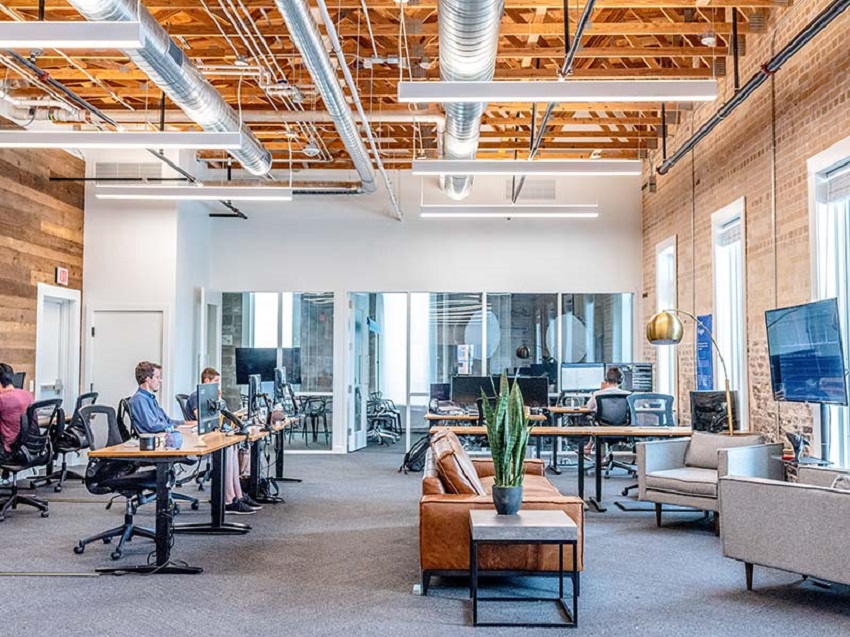Key Takeaways
- Energy-efficient cooling systems offer multiple benefits, including cost savings and reduced environmental impact.
- Avoiding poor maintenance and improper thermostat settings can improve energy efficiency.
- Innovative technologies like smart thermostats and variable-speed compressors optimize energy use and enhance performance.
- Regular maintenance is crucial for the longevity and efficiency of cooling systems.
- Financial incentives make investing in energy-efficient systems more feasible and attractive.
Introduction
In today’s business world, energy efficiency is more than a buzzword; it’s necessary. Commercial cooling systems can account for a significant portion of a business’s energy consumption, making it essential to focus on enhancing efficiency. This promotes environmental sustainability in addition to cost savings. In this article, we’ll explore various methods and strategies to boost the energy efficiency of commercial cooling systems.
Benefits of Energy-Efficient Systems
Energy-efficient cooling systems provide numerous benefits beyond just cost savings. They contribute significantly to a more comfortable environment and help reduce carbon footprints. Most importantly, modern air conditioning units are made to operate as efficiently as possible while consuming less energy, which reduces electricity costs and has a minor environmental effect.
According to energy experts, converting to high-efficiency systems can cut energy use by 30%. This reduction decreases utility costs and enhances operational efficiency and reliability. Furthermore, energy-efficient systems often feature advanced technologies that improve indoor air quality and overall comfort, boosting employee productivity and well-being.
Common Energy-Wasting Mistakes
Many businesses fall into the trap of energy inefficiency through simple mistakes. One of the most common errors is neglecting regular maintenance. Outdated equipment and improper thermostat settings can significantly increase energy consumption. For example, businesses often overlook the importance of proper air conditioning installation, leading to increased energy use and decreased system lifespan.
Additionally, not calibrating systems to actual environmental needs can lead to overuse. Running the cooling system at total capacity when the building is unoccupied is a typical yet avoidable error. Proper facility manager training and routine energy audits can help identify these common pitfalls, enabling timely corrective actions to ensure efficient operation.
Innovative Technologies
Technological advancements have paved the way for smart thermostats, variable-speed compressors, and energy-efficient refrigerants. These technologies optimize energy use and enhance system performance. For instance, smart thermostats can learn usage patterns and adjust temperatures accordingly, maintaining comfort without wasting energy.
Variable-speed compressors can fine-tune their output to match cooling demands, reducing energy consumption and wear and tear on the system. Energy-efficient refrigerants lower greenhouse gas emissions, making these technologies beneficial for businesses and the environment. Implementing such innovations can lead to substantial energy savings and lower operational costs.
Maintenance Tips
Regular maintenance of cooling systems is essential to their longevity and effectiveness. Simple steps like cleaning or replacing air filters, checking for refrigerant leaks, and scheduling annual inspections can prevent energy waste and costly repairs. Well-maintained systems operate more efficiently, consume less energy, and have a longer service life.
- Replace air filters regularly to maintain optimal airflow and efficiency.
- Check for refrigerant leaks to preserve cooling capacity.
- Schedule annual professional inspections to keep the system in peak condition.
- Monitor system performance and address issues promptly to avoid costly repairs.
Financial Incentives and Benefits
Various financial incentives are available to businesses investing in energy-efficient cooling systems. These incentives, offered by governmental and non-governmental organizations, can significantly offset initial costs and expedite the return on investment. By taking advantage of these financial programs, businesses can invest in more feasible and attractive new technologies.
Beyond financial incentives, energy-efficient systems offer long-term savings on energy costs, reduced maintenance expenses, and potentially higher property values. Companies prioritizing energy efficiency also benefit from tax credits, insurance discounts, and enhanced corporate reputation, making energy-efficient cooling systems an innovative and sustainable investment.
Conclusion
Boosting energy efficiency in commercial cooling systems is a cost-effective and environmentally responsible strategy. By understanding the benefits, avoiding common mistakes, leveraging innovative technologies, and performing regular maintenance, businesses can significantly enhance the efficiency of their cooling systems. Additionally, taking advantage of financial incentives can make these upgrades even more attractive, ensuring a sustainable and profitable future.



